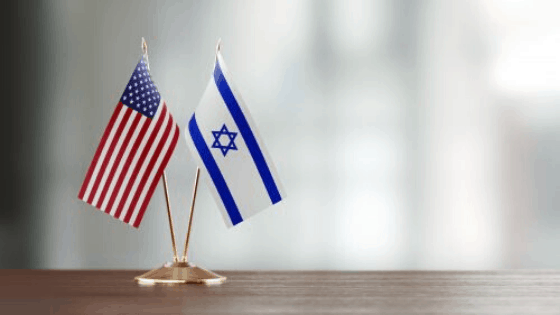A short while ago, I arrived at Ben Gurion airport. Together with JCRC’s Director of Israel Engagement, Eli Cohn-Postell, we’re starting out on our biannual civic leaders study tour, this time together with members of the Massachusetts Senate.
A few weeks ago, I was talking with an Israeli friend with both British and American citizenship. This person, only half-jokingly, commented that, at the moment, it was hard to tell which of these nations had more dysfunctional politics.
It is, to my mind, a tough question; especially when I focus on the negative aspects currently manifesting in each system. When I was last in Israel – in July – the Israeli people were in the midst of their second national election campaign this year. I never imagined the possibility that during this week’s trip they could embark on their third election cycle in less than a year. Since summer, Britain has blown through its latest Brexit deadline, with national elections pending next week (and a deeply worried Jewish community to wit). And, in the US, well, where shall we start?
But there’s another way of looking at this, which is to see the half-full glass, the moments, people, and institutions that inspire hope.
Observing developments in Israel, of course there’s much to be said about a nation whose prime minister is facing a trial over corruption charges. But there’s also something to be said about a country where the attorney general who brought those charges was himself appointed by that very same prime minister. And, whether one agrees or not with specific policies of the government, it’s notable that the institutions of justice are taking a stand, and how that action – to many of us – compares favorably with the role of our own attorney general in our current political process addressing our own President’s behavior.
And while three national elections within one year appears chaotic, it is also worth noting that a large chunk of Israel’s electorate is “holding the center.” Politicians and parties are, through their “constitutional” process (though Israel doesn’t have an actual constitution) reaching out from center-left to center-right and trying to form a consensus politics about the direction of the state and its character. Does this compare favorably to our own fractured politics in the US where a House divided has become the default, and the idea of common ground or shared understanding seems a distant memory? I think so.
And at a time when Americans, obsessing in our like-minded bubbles on social media, increasingly living and working in red and blue silos, and telling pollsters that the greatest tragedy would be for our children to marry across party lines, I’m inspired by my friends here. Because the divides between Israelis and Palestinians are surely even deeper than much of what divides us as Americans. And yet, as on every trip, we’ll be meeting with folks who are reaching out across these divides to build empathy and compassion.
Thousands of Israelis and Palestinians are working together on grassroots projects for mutual recognition, dignity, and peace. We, through Boston Partners for Peace, believe in their ability to change the narrative and shape the future. They inspire us and I look forward to reporting on their efforts again after our visits this week.
So, I’m not ready to say which of our countries is most dysfunctional right now, nor do I think this is a particularly useful exercise. But what I can say – without in any way being naïve about the extraordinary challenges that Israelis, Palestinians, and the people of this region face, and the importance of supporting their efforts to resolve these challenges – is that I also think we can learn from and be inspired by what we witness here; people who don’t give up in the face of adversity; people who keep reaching out to each other and remain committed to building a hopeful future; and people who are representing the institutions and systems of a functioning democracy.
And maybe, just maybe, instead of judging them too harshly for their very human flaws, we Americans – who live in a glass house of our own – can be a little quieter and do a little more listening as we seek to understand the people who live here. And, hopefully, as I do on every trip here, I can come away a little more inspired, a little more committed to not giving up on the people here, and even learning from what they can teach us about our own dysfunctional politics right now.
Shabbat Shalom,
Jeremy


